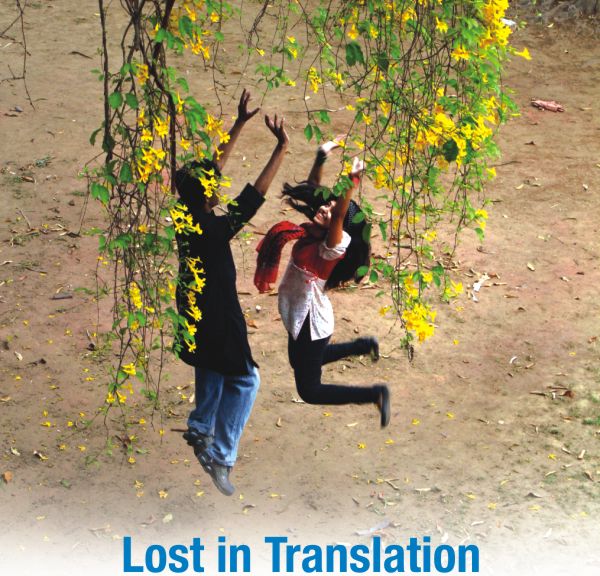|
Extra Credit

Sabhanaz Rashid Diya
Photo: Kazi Tahsin Agaz Apurbo
When I sat down to write this piece, the SSC results had just come out. Like every year, there were joy and tears in the air, flaunted media coverage and gala ceremonies to honour the best. I always feel slightly unsettled around this time of the year. The fact that there are lakhs of students flocking in the streets of Bangladesh bearing the politically correct GPA 5.0 flag on their foreheads, and the greater fact that there are not enough institutions down the line that can accommodate their multifaceted talents is indeed intimidating. The more frightening fact is that there are those others who are not bearing the coveted flag but in reality, are some of the brightest minds of the country and will miss out on opportunities because their scores just do not fit the profile. Then there is a third group, those who have been told all their lives that grades mean everything and would commit suicide or sulk into deep-seeded depression because they are 0.25 marks short of greatness.
Do not get me wrong here. Grades are very important, but so are life choices, passionate dreams and slightly eccentric ambitions. I am all for grades as long as they are coupled with genuine intention towards learning. The problem arises when it becomes all about grades and less about the individual, all about keeping the image straight and less about personal growth.
I was not really aware of how dire the situation is had it not been for Shorey Aw. As part of a more holistic and sustainable approach towards mentoring young people to practice active citizenship, in late 2008, One Degree Initiative started a research and academic counselling programme for students appearing for SSC or just beginning to pick their concentrations (science, arts or commerce). We traveled to schools across the country to get a more insightful grasp of the phenomenon that was happening inside classrooms, how teaching standards are evaluated, the percentage of students are picking science and why, and so on. The findings were alarming.
On an average, and in rural or semi-urban settings, more than 50 percent of 8th graders wanted to be doctors. They have been told, since childhood, that this was the noblest of professions and only with a premeditated zeal for medical science will they truly be successful. They have also been constantly reminded of the necessity of GPA 5.0 and how without it, they are not only embarrassing themselves, their parents, their communities, but also their teachers, their schools and their country. That is probably the predictable bit. The remaining less than 50 percent of 8th graders were divided between engineering and law and when we asked what do engineers or lawyers do, no one, I repeat, no one could specifically tell us. Engineers ra desher sheba kore, ukiil ra manush der hajot e atkaye rakhe (Engineers serve the nation, lawyers put people into cells). That was the unpredictable, and scary bit.
It was not scary because we expected them to know everything. It was scary because these 8th graders genuinely had their whole lives revolving around such ambitions, yet they did not understand the purpose of them or, were terribly ill-equipped to pursue them. No one ever explained to them that one needs biology to study medicine, one needs certain scores in Maths to apply for BUET, and life is not over if you could not get into Dhaka Medical College or University of Dhaka. No one ever really mentioned to them that because they are good in Physics, they could possibly consider studying Physics and be scientists; because they enjoyed reading books or sparking ideas, they could be writers, policy makers, university professors or entrepreneurs. No one told them science is not limited to engineering or medicine, but it can also be the portal to explore wide spectrums such as microbiology, genetics, physics, chemistry, aeronautics and many more.
That is what unsettles me. There is an obvious information gap, and surprisingly, it is no longer a rural problem. Most schools in major cities like Dhaka and Chittagong rarely discuss about possibilities, about how an 86 percent in Chemistry can create unthinkable and inspiring opportunities for young people. It is when SSC results come out the problem seems at its peak, and coaching centres and travel agents thrive. Our students are truly lost in translation.
Does that mean information is missing? Or, does it put a responsibility upon us to actually feed information to students? What is our role as thinkers, academicians, policy makers, social activists and journalists? The Internet is an amazing place to discover, only when it is used in an effective way. The information is certainly there, even outside the Internet but it somehow never reaches its truest users. Our role is to minimise that gap, through whatever means we can and ensured information (and not decision) is passed along.
Isaac Asimov quite bluntly once said that anti-intellectualism in the modern world has reached a stage where it is often used in the same light as knowledge. The old saying where ignorance is bliss seems to have found its positive connotation in our lives. In reality, whether knowledge is power or curse is often debatable, whether information is necessary or an overload is often subjective. Yet, the modern world commits to the free passage of information, and more often than not, it is this very information gap that leads to the sad demise of the brightest of potentials.
(Sabhanaz Rashid Diya is a major in Media and Communication at Independent University Bangladesh and the founder of the nonprofit youth organization, One Degree Initiative Foundation.)
|
Copyright (R) thedailystar.net 2012 |
